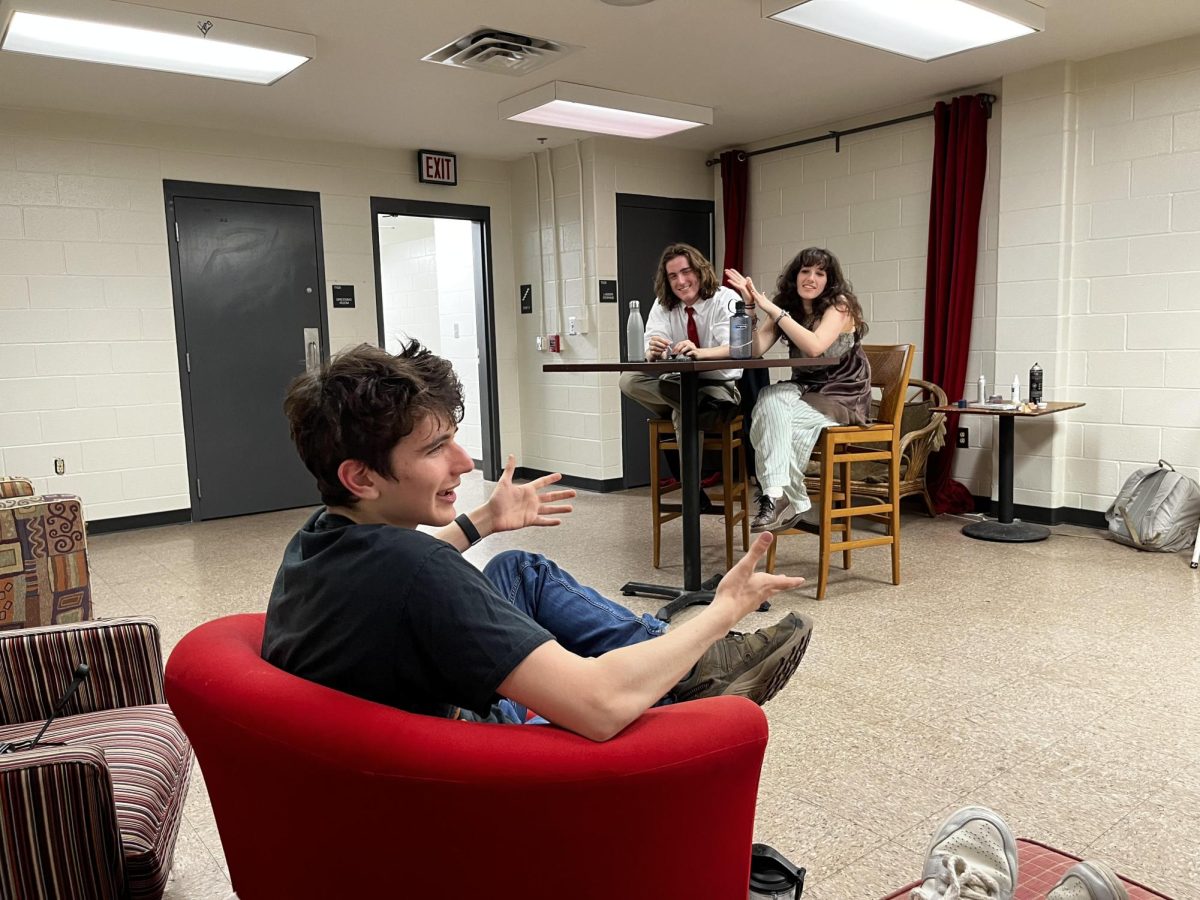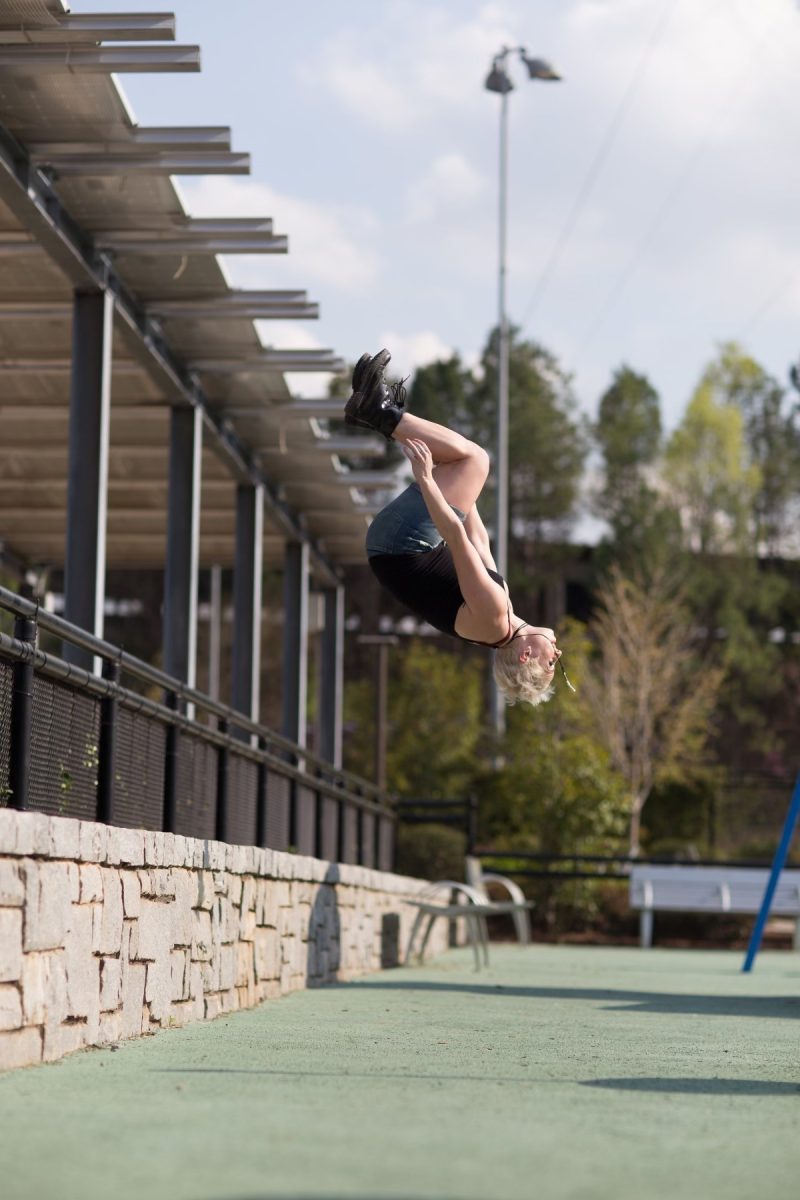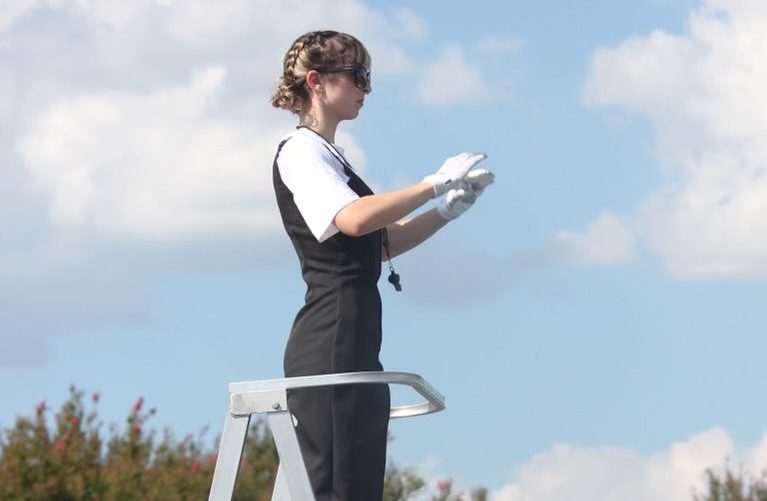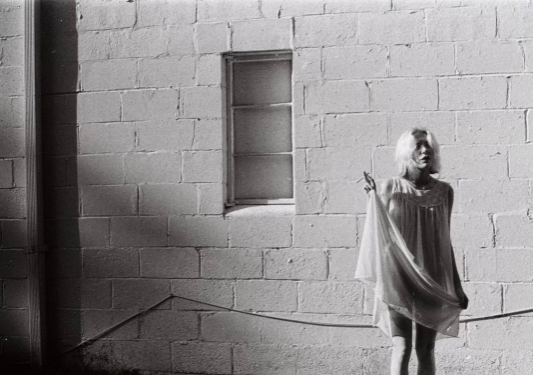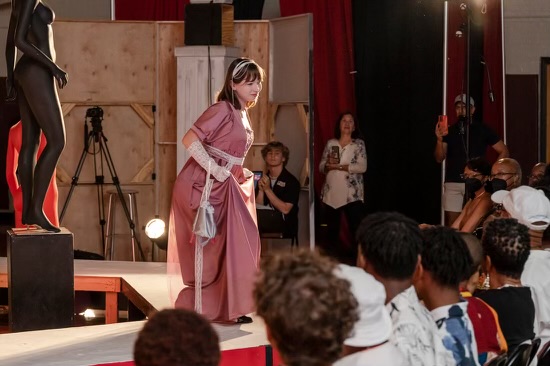By Nick Hamilton
Music is a moral law. It gives soul to the universe, wings to the mind, flight to the imagination, and charm and gaiety to life and to everything. — Plato
For Brian Cook, this message is oftentimes muffled by his day-to-day experience as Band Director at Grady High.
Cook, 50, works in a room that mirrors the size of a basketball court. The white of the expansive walls makes the emptiness of the room more apparent; the band room walls are in line with the theater’s, over 30 ft. high. The room is meant to hold a 150-student band, but currently the band’s size is less than a third of that number. In the center a podium faces rows of mismatched black and blue chairs, and further back, more chairs stacked against a wall, unneeded by a band of 43.
A broken Plexiglas shelf containing trophies, the most recent won six years ago by a director long gone from Grady, adorn another blank wall.
Alone, and on his old APS laptop during his lunch break, Cook pulls up videos of marching bands on his Promethean Board behind the podium, sizing up the competition. Cook spends his free time playing around the city at jazz clubs, traveling to music events across the country, earning some side money along the way.
Minutes in to lunch, a group of students in both the marching band and regular band walk in, conversing loudly about each other, the latest technology, school programs, and so on. They talk without restraint around Cook, whose casual authority puts students at ease when they are in his classroom.
“I’m shooting for an environment in which kids want to be here,” Cook said. “Where they want to learn, where they want to learn as a group. That’s what I’m pushing for, that’s my biggest objective.”
The group’s conversation is interspersed with slow movement towards the table where Cook sits. He occasionally interjects with a comment that sets off the group.
“Yeah, you need to get that song together. It sounds like a load a bull,” Cook says.
“It’s the saxes! Mr. Cook, you know it is!” someone from the groups says.
He laughs. “Whatever,” Cook responds, smiling.
The group leaves. There is stillness once again. The only sounds are those of the quiet cheers coming from the band onscreen.
Soon, it is fourth period jazz band. Students trickle in, casually talking and laughing as they get their instruments out of their cases. A few minutes pass, and everyone is ready. Cook calls for Straight, No Chaser, a piece the band has been struggling with since the beginning of the year.
They begin to play. The saxophones in the front row are the first to play. When they start, it is clear to Cook what they are playing is wrong.
“Stop, stop, stop,” Cook says. “Saxes, by themselves, from the top.”
Cook reads the chart along with students, humming the rhythm as they move through the song. They play twice more until they get it right. Cook calls for the rest of the band to begin again. Already, a look of frustration makes obvious Cook’s emotions.
The band starts up once more. Just measures after the saxes’ difficulties, something else is wrong. Cook stops to fix a problem with the electric bass, which is resolved in another few minutes. The band starts again. There is another problem, and then another.
Fed up with these problems, he rises suddenly, yelling, “Stop!” He jumps down from the podium. In the process, he knocks it to the floor. It crashes, and the sheets of music on it scatter.
Soon, though, after his agitation subsides, he gets back on the band stand, and counts the band off from the top again. Frustration with students is a daily struggle for Cook. This routine is not what Cook had in mind 18 years ago when he began teaching.
Cook was inspired to teach by his college flute instructor, Athelia Caplan, to enter into musical education.
“She taught me whatever gift you have, you need to give back,” Cook said. “And I have always thought and believed in that motto. She said ‘Cook, kids like you, they always gravitate around you, so teach.’”
Before teaching at Grady, Cook taught elementary school for 10 years.
“Everything ran itself, like clockwork. The kids wanted to be there, and that is how I have always taught,” Cook said.
Cook relies on his students to accomplish what they need to, and expects his students to be motivated coming in to class. But when Cook arrived at Grady, for the first time in his career, he ran into trouble.
“When I first got to Grady, It was a dead program,” Cook said. “It was on its last leg. I’m not sure why. I don’t ask questions. The kids weren’t motivated. The program was run by the kids, and not by the instructor.”
Since then, he has instated new practice and rehearsal times after school and before, on nearly every day.
“I’m always pushing it. I want to see what level I can get the kids to come to,” Cook said.
But despite this extra time, the bands have struggled to grow or win competitions, perhaps because few band members attend these scheduled practice times.
“I will give an exercise and students won’t give 100 percent. They give 50 percent to it,” Cook says. [Students not practicing] has a major impact. It impacts the music, it impacts the performances. We can’t participate in the activities I want to participate in because we can’t really go out somewhere if it’s going to sound half way- I’m not going to take a half- sounding band out. It’s a major frustration.”
The bands (jazz and classical) have not won a competition since 2005, two band directors ago. The reason behind why students lack motivation, though apparent, is unclear to Cook.
“I’m not sure [why they lack motivation],” Cook said. “Maybe it’s because their parents push them in here.”
Cook is looking into developing an award system for his students, to create an incentive for showing up for rehearsals. The rewards could include venues students want to participate in, trips to amusement parks and out-of-state locations, and food, among other things. But orchestra teacher and friend of Cook, Sergio Rodriguez has a much simpler approach, and yet consistently a near 100 percent of his students arrive at rehearsals regularly.
“I think what the band needs is structure,” Rodriguez said. “They need to know that at whatever rehearsal you have that you are going to start at time. You need to be prepared with every tool you need to be engaged in the learning process. And everybody needs to be participating. When only you do it, and everybody else is on Facebook, running around, skipping class, whatever- then the whole thing falls apart.”
Cook and Rodriguez have hall duty in the morning together. They talk back and forth about their classes. Rodriguez has gotten to know Cook over the two and a half years Cook has worked at Grady.
“He is very likeable, he’s a nice man,” Rodriguez said. “Very talented. He loves jazz music. It’s easy to work with him. He’s an honest man and he was put here to teach in a challenging position.”
Rodriguez makes his students sign their names on an attendance sheet to record their participation in rehearsal.
“When they sign their name, they are committing to it. Every Tuesday they sign in and I send it to the parents. And if they do not show up, they are put on probation and they cannot play concerts,” Rodriguez said.
Students of Rodriguez are motivated by their teacher’s rigorous efforts in pushing them to practice and participate in rehearsals.
“I think he is extremely effective,” Nathaniel Pate said, a bassist in one of Rodriguez’s orchestras.
Rodriguez talks to Mr. Cook about what he does to motivate students. He grades student practice logs, which are signed by parents. Mr. Cook claims that he too uses a grading system to push students to practice. But according to several of his students, that is not always the case.
Logan Mann is a trumpet player in Cook’s jazz band. “We don’t really have grades in jazz band, Mann said. “I think a grade structure would definitely motivate students. The group is far from perfect, and we could probably use more work … We are not really required to do much.”
Yet to Mann, the lack of structure has been beneficial to some of the students.
“That is not Mr. Cook’s style—to have a super structured, Nazi-esque band program that you would find in Decatur or North Atlanta… I can focus on my personal development as a musician.”
Still, Cook is looking to win competitions in group performance. The more competitions the bands compete in, the more money is raised, which according to Cook will almost definitely grow the program, his end goal. Cook has not yet reached his goal with the program at Grady: to make music people will want to listen to. But he is getting there.
“The program is going to get bigger. We’re going to win competitions. I believe in the students. The students are starting to believe in me,” Cook said. “The arts are one of the most important things out there. We may take care of basic life, but we still need music. ‘If music is the food to our souls, we’ll play on.’ That’s the real deal.”






